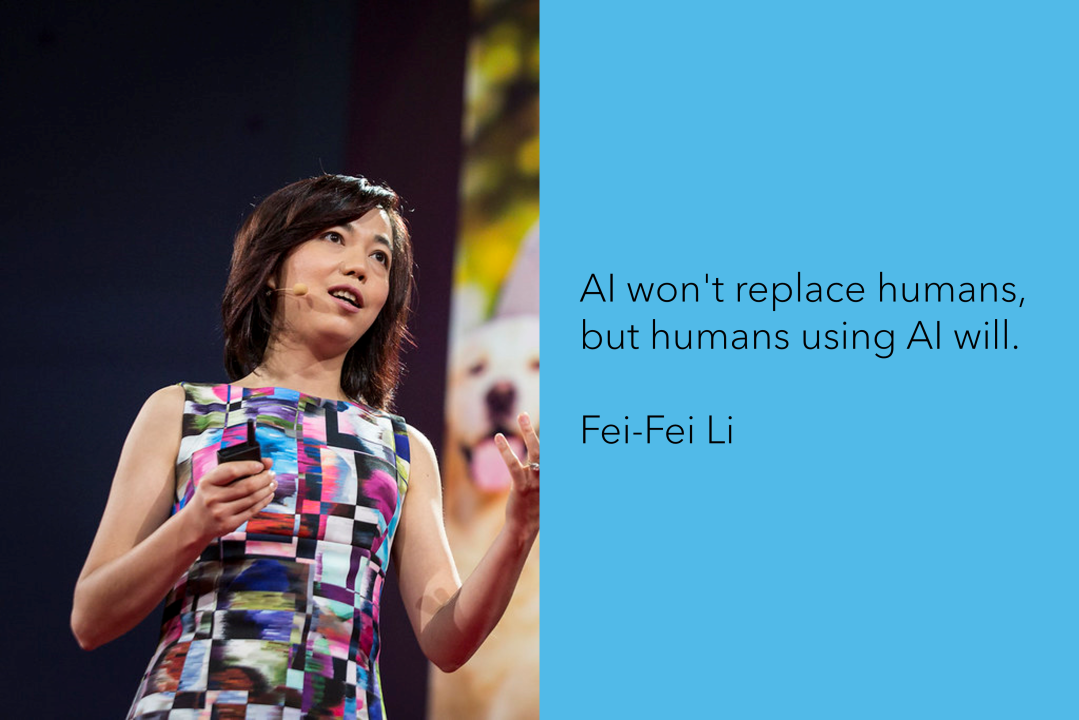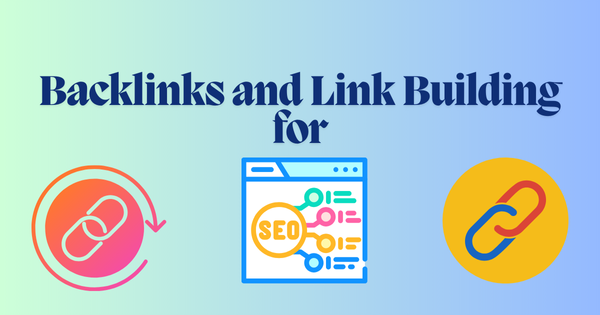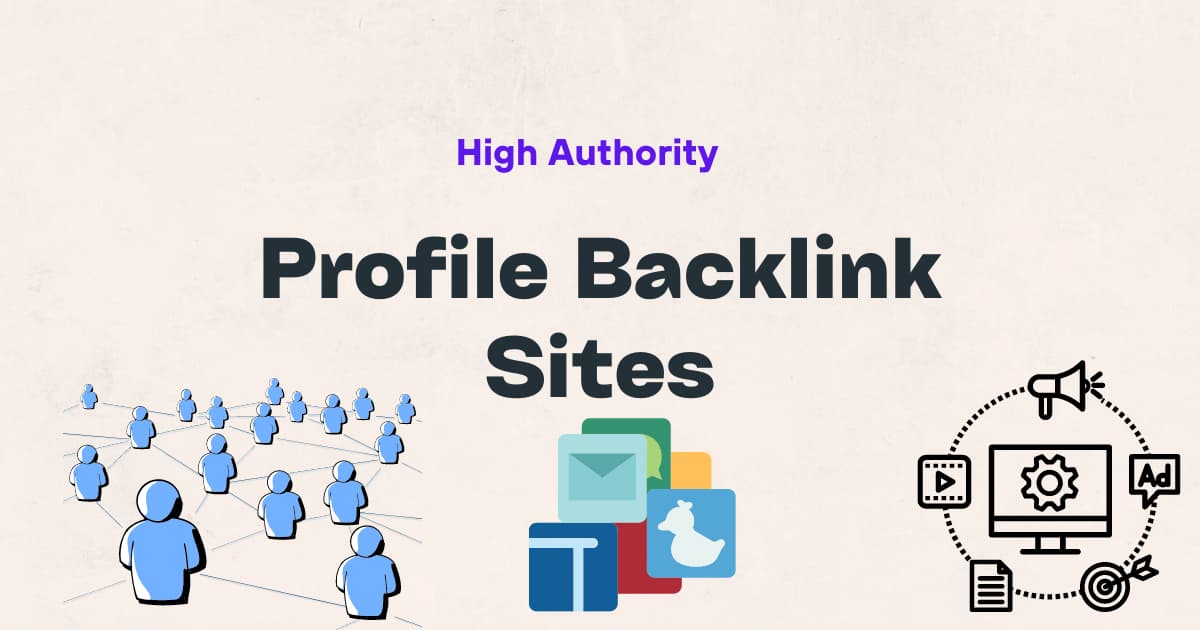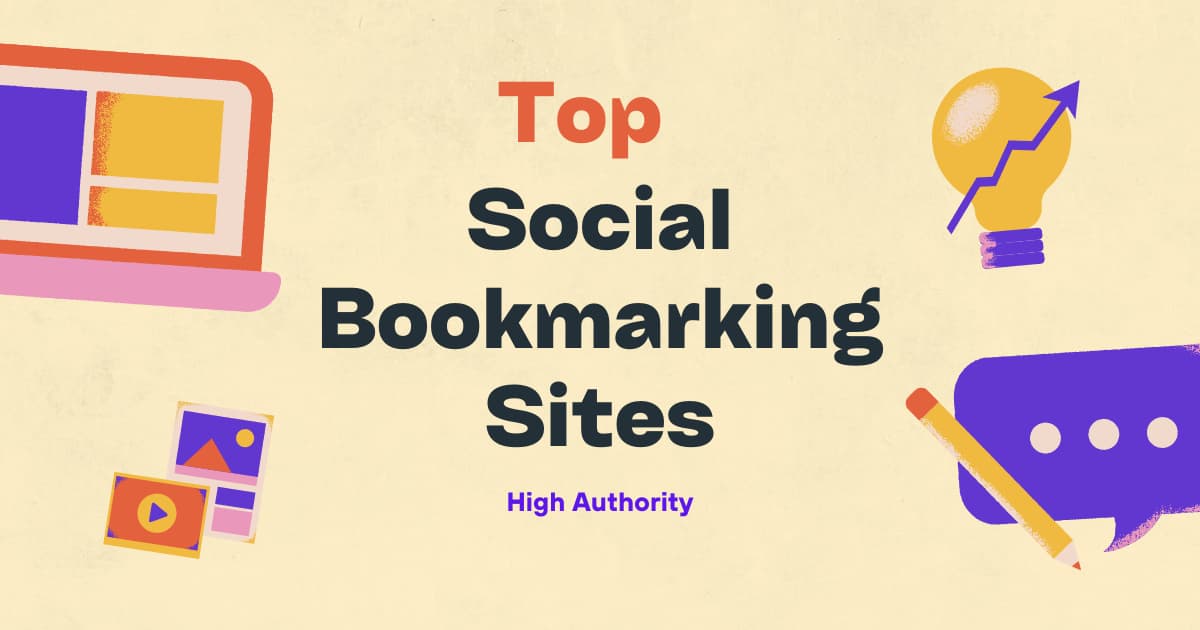AI won’t replace humans. It will complement human abilities and enhance productivity.
As technology advances, the role of AI in various industries continues to expand. While AI can automate repetitive tasks, humans bring creativity, critical thinking, and emotional intelligence to the table. This synergy between AI and humans can lead to innovative solutions and improved efficiency.
In fields such as healthcare, finance, and manufacturing, AI can assist in data analysis and decision-making, but human judgment and empathy remain invaluable. Rather than replacing humans, AI is poised to empower them by streamlining processes and freeing up time for more impactful work. Understanding the symbiotic relationship between AI and humans is crucial for harnessing the full potential of both.
The Rise Of Ai In The Workplace
In today’s rapidly evolving digital landscape, the integration of artificial intelligence (AI) in the workplace is becoming increasingly prevalent. This technological advancement has sparked a range of discussions about its potential impact on jobs and the fear of job replacement. As AI continues to revolutionize various industries, it’s essential to examine its implications and dispel the misconceptions surrounding its role in the workforce.
Ai’s Impact On Jobs
Artificial intelligence has undeniably reshaped the modern workplace, streamlining processes and enhancing efficiency. With the ability to automate repetitive tasks and analyze vast amounts of data, AI has proven to be a valuable asset in optimizing productivity across different sectors.
The Fear Of Job Replacement
Despite the evident benefits of AI, there exists a prevailing fear of job displacement among workers. This apprehension stems from the misconception that AI will entirely replace human labor, leading to widespread unemployment and economic instability. However, this notion overlooks the potential for AI to complement human capabilities and create new opportunities within the workforce.
Ai’s Limitations
AI’s Limitations: While artificial intelligence has made significant advancements, it still has certain limitations that prevent it from completely replacing humans in various tasks.
Understanding Context
AI often struggles to understand the context of situations, leading to errors in decision-making and problem-solving.
This limitation arises from AI’s inability to interpret nuances and underlying meanings in human communication.
Lack Of Creativity
Artificial intelligence lacks the ability to think creatively and come up with innovative solutions to complex problems.
This limitation hinders AI from adapting to new or unforeseen scenarios that require creative thinking beyond set algorithms.
The Human Advantage
Discover why AI won’t replace humans in ‘The Human Advantage’. Unleashing creativity and emotional intelligence gives humans a unique edge in the digital age.
The Human Advantage Humans possess unique qualities that AI cannot replicate. Let’s explore why the human advantage will always be valuable in a world of advancing technology.Emotional Intelligence
Humans excel in understanding and navigating emotions, a skill AI lacks. Emotional intelligence allows us to empathize and connect on a deeper level.Complex Problem Solving
Humans have the ability to tackle complex problems creatively and adaptively. Our critical thinking and innovative solutions set us apart from AI. In a world driven by technology, the human touch remains irreplaceable. Our emotional intelligence and problem-solving skills give us the edge over AI..jpg?quality=low&width=800&height=450&name=AI-wont-replace-you%20(1).jpg)
Credit: www.rchilli.com
Collaboration Between Humans And Ai
As technology continues to advance, the relationship between humans and artificial intelligence (AI) has become a topic of great interest. Contrary to the fear of AI replacing human jobs, the focus has shifted towards the collaborative potential of humans and AI working together to achieve better outcomes.
Enhancing Human Capabilities
AI has the capability to enhance human abilities by processing large volumes of data at an incredible speed, enabling individuals to make more informed decisions. By leveraging AI, humans can augment their problem-solving skills and creativity, leading to more innovative solutions.
Ai As A Tool, Not A Replacement
It’s important to recognize that AI should be viewed as a tool to complement human efforts rather than a replacement for human intelligence. By utilizing AI as a tool, humans can focus on tasks that require emotional intelligence, critical thinking, and complex decision-making, while AI handles repetitive and data-intensive processes.
Ai In Various Industries
AI is making significant strides in various industries, revolutionizing the way businesses operate. While there is concern about AI replacing human jobs, the technology is actually complementing human efforts. Let’s explore how AI is transforming key sectors.
Healthcare
In healthcare, AI is enhancing diagnostic capabilities through image recognition and data analysis. Medical professionals can utilize AI to interpret radiology images, detect anomalies, and identify potential health issues. Furthermore, AI-powered virtual assistants are streamlining administrative tasks, allowing healthcare providers to focus more on patient care.
Finance
AI is reshaping the finance industry by automating repetitive tasks, such as fraud detection and risk assessment. Financial institutions leverage AI algorithms to analyze vast amounts of data, identify patterns, and predict market trends. This enables more informed decision-making and enhances the overall efficiency of financial processes.
Manufacturing
In the manufacturing sector, AI is optimizing production processes and improving quality control. Robotic systems equipped with AI capabilities are increasing precision and speed in assembly lines, leading to higher productivity. Additionally, predictive maintenance powered by AI helps prevent equipment failures, minimizing downtime and reducing operational costs.

Credit: hbr.org
Ethical Considerations
Ethical considerations play a crucial role in ensuring that AI technology complements human abilities rather than replacing them. It is important to address concerns about the impact of AI on employment and society, and to prioritize the ethical use of AI to support human well-being and progress.
This approach will help to harness the potential of AI while upholding human values and dignity.
As AI continues to evolve, there are concerns about its impact on human jobs and its ability to replace human beings. However, it is important to understand that AI is not a replacement for human intelligence. AI can only perform tasks that it is programmed to do, and it lacks the creativity, intuition, and critical thinking skills that are unique to humans. There are also ethical considerations that must be taken into account when it comes to the use of AI. In this section, we will discuss some of the ethical considerations of AI, including data privacy, bias and fairness.Data Privacy
Data privacy is a major concern when it comes to AI. AI systems rely on vast amounts of data to learn and improve. However, this data often contains sensitive information about individuals, such as their personal details, financial information, and health records. It is essential to ensure that this data is protected and that individuals have control over how their data is used.Bias And Fairness
Another ethical consideration when it comes to AI is bias and fairness. AI systems can be biased, just like humans. This can lead to unfair outcomes, such as discrimination against certain groups of people. It is important to ensure that AI systems are designed to be fair and unbiased. This can be achieved through careful selection of data sets, transparency in the algorithms used, and ongoing monitoring and evaluation of the system. In conclusion, AI is a powerful tool that has the potential to revolutionize many industries. However, it is important to consider the ethical implications of its use. Data privacy, bias, and fairness are just a few of the ethical considerations that must be taken into account when developing and using AI systems. By addressing these issues, we can ensure that AI is used in a way that benefits society as a whole.Preparing For The Future
As we navigate the evolving landscape of technology, it’s crucial to equip ourselves with the necessary skills to thrive alongside AI.
Upskilling And Reskilling
Investing in continuous learning is essential to stay relevant in the workforce.
- Identify areas for growth in your current skill set.
- Enroll in online courses or workshops to expand your knowledge.
- Stay updated on industry trends to adapt proactively.
Embracing Change
Adopting a growth mindset is key to embracing the inevitable shifts in the workplace.
- Be open to trying new approaches and technologies.
- Seek feedback to improve and adapt to changing circumstances.
- Collaborate with colleagues to foster a culture of innovation.
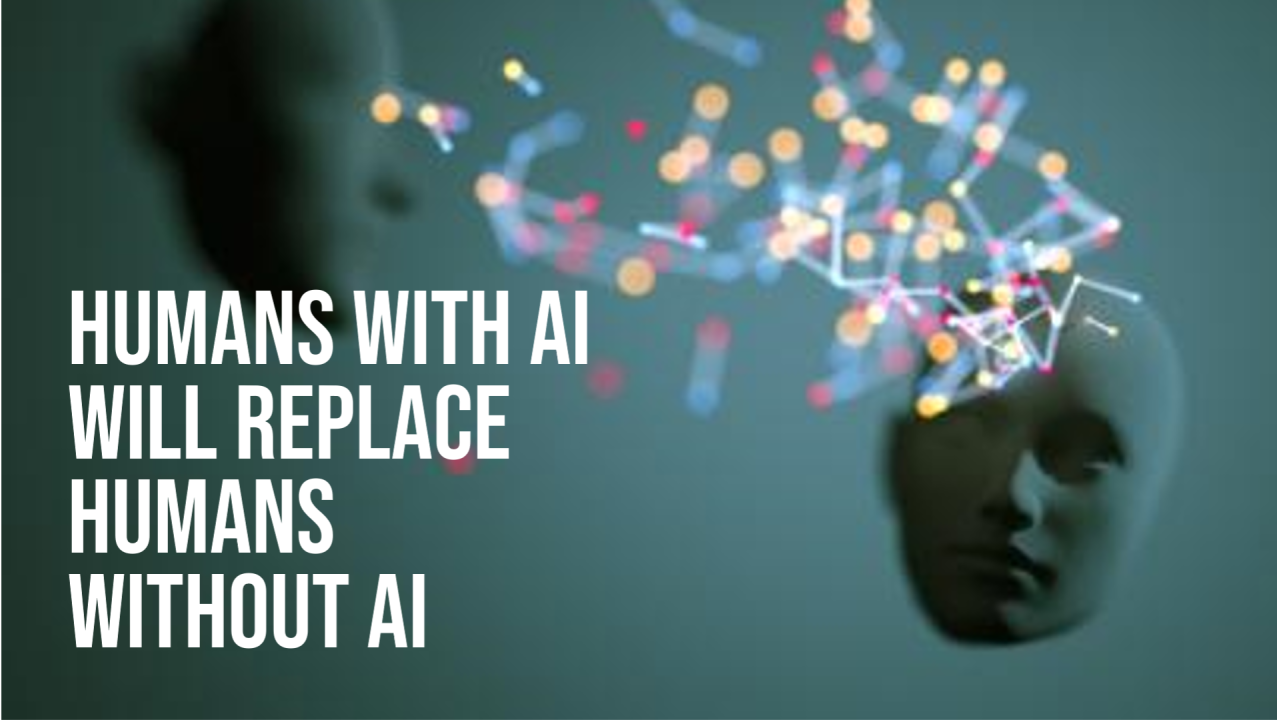
Credit: www.linkedin.com
Frequently Asked Questions
Why Won’t Ai Replace Humans?
AI lacks human creativity, emotions, and ethical judgment. It’s a tool to enhance human capabilities, not replace them.
Will Ai Wipe Out Humanity?
AI’s impact on humanity is uncertain, with risks and benefits. It’s crucial to ensure AI is developed ethically and responsibly.
Can Ai Survive Without Humans?
Yes, AI can survive without humans as it can function independently based on programming.
How Close Is Ai To Replacing Humans?
AI technology is advancing rapidly, but it is not close to completely replacing humans. AI can perform specific tasks, but it lacks the creativity, empathy and decision-making abilities of humans. AI and humans can work together to improve productivity and efficiency.
Conclusion
As technology advances, AI remains a tool to enhance human capabilities, not replace them. The unique blend of human creativity and emotional intelligence cannot be replicated by machines. Embracing AI as a partner in innovation will lead to a future where humans and technology coexist harmoniously.

